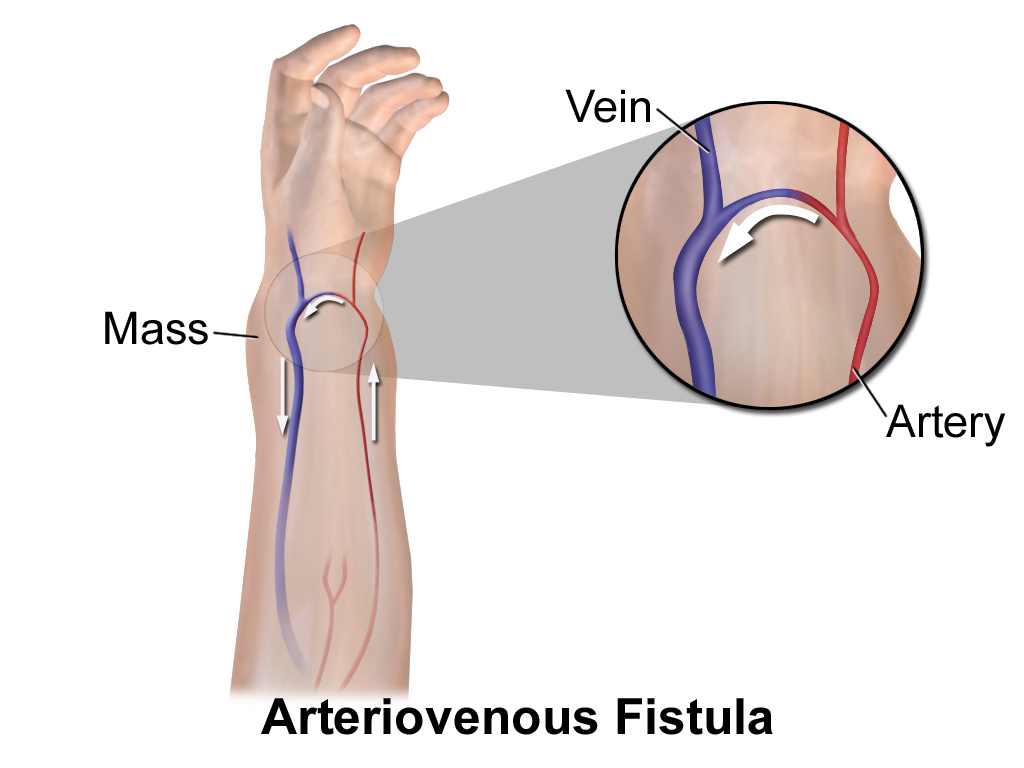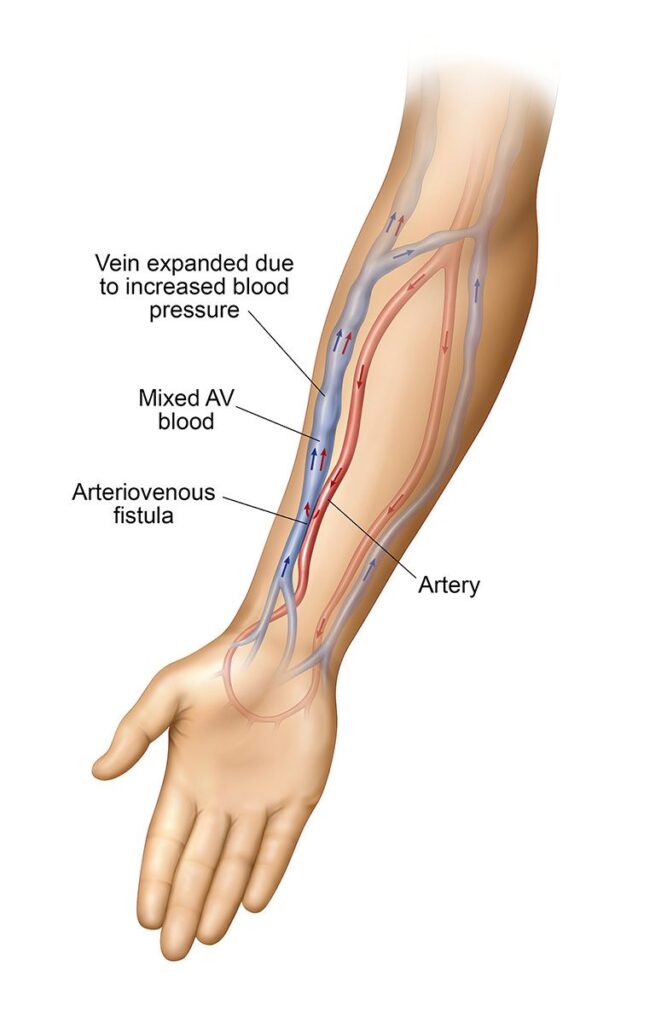
Cost of AV Fistula Surgery in ECIL
An Arteriovenous Fistula is an abnormal connection or passage way between the artery and a vein. The cost of Arteriovenous Fistula Fistula Surgery depends upon multiple factors and ranges from Rs. 35,000 to Rs. 1,55,000 in ECIL. This connection can be created surgically for hemodialysis or maybe congenital. If it is created congenitally, then the treatment option is decided by the surgeon.
An arteriovenous (AV) fistula is an abnormal connection between an artery and a vein. Normally blood flows from your arteries to your capillaries and then on to your veins. Nutrients and oxygen in your blood travel from your capillaries to the tissues in your body.
In an arteriovenous fistula, blood flows directly from an artery into a vein, bypassing some capillaries. In this case, tissues below the bypassed capillaries receive less blood.
Arteriovenous fistulas usually appear in the legs, but can develop anywhere in the body. Arteriovenous fistulas are often surgically made for use in dialysis in people with severe kidney disease.
A large, untreated arteriovenous fistula can lead to serious complications. Your doctor will monitor your arteriovenous fistula in case you have one on dialysis.
Symptom
Small arteriovenous fistulas in the legs, arms, lungs, kidneys, or in the brain often have no signs or symptoms and usually only need to be monitored by your doctor. Large arteriovenous fistulas can cause signs and symptoms.
Signs and symptoms of an arteriovenous fistula may include:
- Purple, bulging veins that you can see through your skin, similar to varicose veins
- Swelling in your arms or legs
- Decreased blood pressure
- Fatigue
- Heart failure
- A significant arteriovenous fistula in your lungs (pulmonary
Arteriovenous fistula) is a serious condition and can cause:
- A bluish tinge to the skin
- Club of the fingers (the fingertips spread out and become rounder than normal)
- Cough up blood
- An arteriovenous fistula in your gastrointestinal tract can cause bleeding in your digestive tract.
When to see a Doctor
If you have any of these signs and symptoms, and think you have an arteriovenous fistula, make an appointment with your doctor. Early detection of an arteriovenous fistula can make treating your condition easier. It can also reduce the risk of complications like blood clots or heart failure.

Causes
Causes of arteriovenous fistulas are:
Injuries that pierce the skin. An arteriovenous fistula can occur when you have a piercing injury, such as a gunshot or stab wound, to a part of your body where the vein and artery are next to each other.
To be born with an arteriovenous fistula (congenital). The exact reason for this is not clear, but in some babies the arteries and veins do not develop properly in the womb.
Genetic conditions. Arteriovenous fistulas in the lungs (pulmonary arteriovenous fistulas) can be caused by a genetic disease (Osler-Weber-Rendu disease, also known as hereditary hemorrhagic telangiectasia) that causes blood vessels to spread throughout the body, but especially in the Lungs, developing abnormally.
Dialysis-Related Surgery. People with late-stage kidney failure may have an arteriovenous fistula that was surgically placed in the forearm to facilitate dialysis.
Risk factors
In addition to certain genetic or congenital diseases, the following risk factors can make you more likely to develop an arteriovenous fistula:
- Be female
- Heart catheterization, especially if the procedure involves blood vessels in your groin
- Certain medicines, including some blood thinners (anticoagulants) and medicines to stop bleeding (antifibrinolytics)
- high blood pressure
- High body mass index (BMI)
- Older age
Complications
If left untreated, an arteriovenous fistula can cause complications, some of which can be serious. These include:
Heart failure. This is the most serious complication of large arteriovenous fistulas. Blood flows faster through an arteriovenous fistula than through normal blood vessels. As a result, your heart pumps harder to compensate for the increase in blood flow. Over time, the increased workload on your heart can affect the way the heart works and lead to heart failure.
Blood clots. An arteriovenous fistula in your legs can cause blood clots to form, which can potentially lead to deep vein thrombosis, a painful and potentially life-threatening condition if the clot gets into your lungs (pulmonary embolism). Depending on where your fistula is, this can lead to a stroke.
Leg pain. An arteriovenous fistula in your leg can cause pain in your leg (claudication) or make existing pain worse.
Bleeding. Arteriovenous fistulas can cause bleeding in the gastrointestinal system.
Arteriovenous,AV Fistula treatment cost in ECIL,Arteriovenous,AV Fistula surgery cost in ECIL
